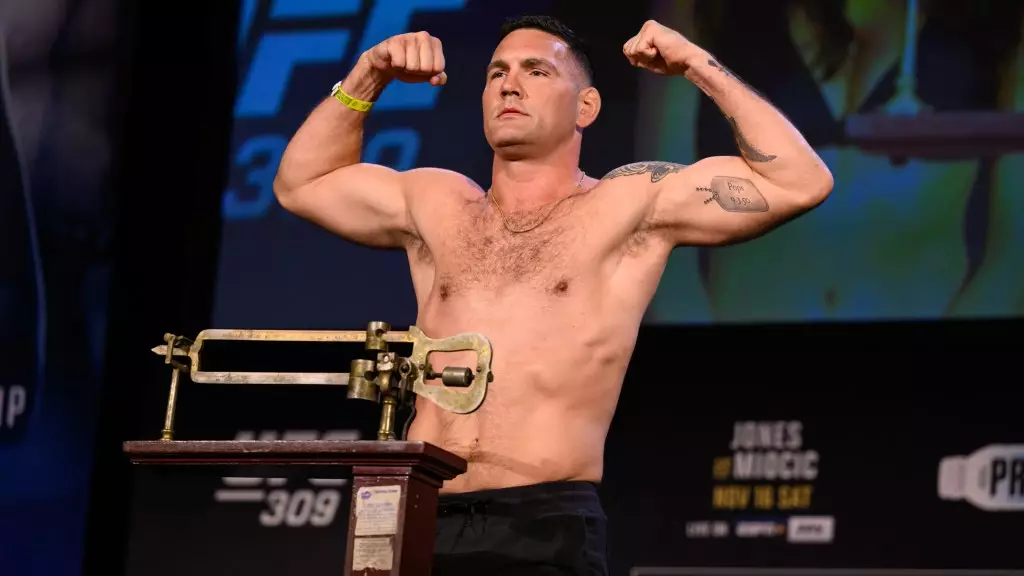In the world of professional sports, the unpredictability of events can lead to heart-wrenching outcomes, as evidenced by Chris Weidman’s recent experience surrounding UFC 309. Scheduled to face Eryk Anders at the prestigious Madison Square Garden in New York, Weidman’s excitement was palpable—only to be met with the bitter disappointment of last-minute cancellation when Anders fell ill. Such abrupt changes are an unfortunate risk inherent in the combat sports realm, and for Weidman, this meant not only the cancellation of a highly anticipated bout but also the emotional weight of disappointing friends and family who had traveled to witness his performance.
Despite the setback, Weidman expressed gratitude towards the UFC for their efforts in seeking a last-minute replacement. His acknowledgment of the organization’s attempts to rectify the situation speaks to a deeper understanding of the complexities faced by promotional companies. “They’re going to take care of me. They’re doing something for me,” he stated in an interview on “The Ariel Helwani Show.” While the UFC made commendable efforts under the circumstances, the reality remains: Weidman will not receive his full fight purse, leaving him grappling with the financial implications while adhering to the stringent protocols established by the New York commission.
The financial dynamics at play in professional fighting can be challenging to navigate. Weidman noted with evident frustration, “My show money is my win money.” This comment encapsulates a critical aspect of athletes’ compensation in mixed martial arts. Fighters typically receive a guaranteed amount, which is often split into show and win bonuses. For Weidman, who fulfilled his obligations by preparing for the match and arriving at the venue, it feels particularly unjust that he will miss out on a significant portion of his earnings due to circumstances outside his control. The financial structure of such events warrants reevaluation, as it places fighters in precarious situations when faced with unexpected cancellations.
Looking ahead, Weidman’s fight against Anders has been rescheduled for UFC 310 on December 7 at the T-Mobile Arena in Las Vegas. This development not only provides Weidman with the opportunity to compete but also a chance for him to redeem the disappointment experienced at UFC 309. However, the lingering frustrations regarding fighter compensation and the inherent risks associated with last-minute cancellations remain unresolved.
As athletes like Weidman continue to face these challenges, the overall structure of compensation within the UFC will likely become a topic of increasing discourse. As fans and fighters alike anticipate UFC 310, the ongoing dialogue about what can be done to protect fighters financially may shape the future landscape of mixed martial arts. Weidman’s experience underscores the need for a comprehensive review of the policies surrounding fight cancellations and athlete compensation, ensuring that fighters receive fair treatment despite the unpredictable nature of their profession.

